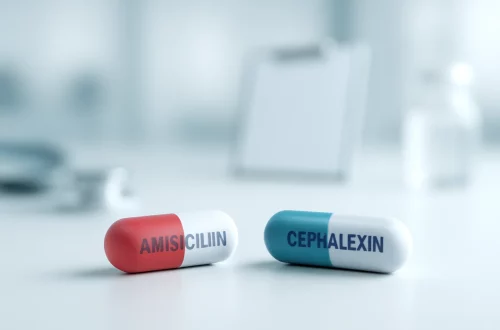
The Benefits of Cat Chew Sticks for Your Feline Friend’s Health
The joy of having a feline companion goes beyond mere companionship; it encompasses a deep bond that enhances both our lives and theirs. As cat owners, we constantly seek ways to enrich our pets’ lives, ensuring they are healthy, stimulated, and happy. One often-overlooked aspect of cat care is their dental health, which plays a crucial role in their overall well-being. Just like humans, cats require regular dental care to prevent various health issues.
In recent years, the popularity of cat chew sticks has surged, offering an enjoyable and beneficial way for our furry friends to maintain their dental health. These chew sticks are not merely a fun toy; they serve as a vital tool for promoting oral hygiene, reducing plaque buildup, and satisfying your cat’s natural instinct to chew. This instinct is not only a source of entertainment but also a crucial component of their overall health.
By incorporating chew sticks into your cat’s routine, you can provide them with enrichment that mirrors their natural behaviors while also serving a functional purpose. This article delves into the various benefits of cat chew sticks, highlighting their role in promoting dental health and overall wellness for your beloved feline friend.
Promoting Dental Health
One of the primary benefits of cat chew sticks is their ability to promote dental health. Just as humans need to brush their teeth regularly, cats benefit from activities that help clean their teeth and gums. Chew sticks are designed to be textured, allowing your cat to scrape away plaque and tartar as they chew. This action can significantly reduce the risk of periodontal disease, which is common in cats and can lead to serious health issues if left untreated.
When cats chew on these sticks, the friction created helps to dislodge food particles and bacteria that accumulate on their teeth. This natural brushing effect can lead to fresher breath and healthier gums. Additionally, some chew sticks are infused with dental-friendly ingredients that can further aid in reducing plaque formation.
Regular chewing can also strengthen your cat’s jaw muscles, providing a form of exercise that is often overlooked. Stronger jaws not only contribute to better dental health but also ensure that your cat can efficiently consume their food. As cats age, maintaining their dental health becomes increasingly important, and chew sticks can play a vital role in their routine.
Moreover, by integrating chew sticks into your cat’s daily activities, you are creating a habit that encourages self-care. Cats instinctively understand the importance of keeping their teeth clean, and chew sticks can serve as a fun and engaging way to fulfill this need. This proactive approach to dental health can save you from costly veterinary bills down the line, as many dental issues can be prevented with proper care.
Providing Mental Stimulation
In addition to their dental benefits, cat chew sticks serve as an excellent source of mental stimulation. Cats are naturally curious creatures, and they thrive on activities that challenge their minds. Chewing on sticks engages their senses, making them feel more connected to their environment. This mental engagement is crucial for their overall well-being and can prevent behavioral problems related to boredom.
When presented with chew sticks, cats often exhibit playful behaviors, such as batting the sticks around, chasing them, and exploring different chewing techniques. This playfulness not only satisfies their natural instincts but also encourages physical activity, which is essential for maintaining a healthy weight and preventing obesity.
Moreover, the act of chewing can provide a calming effect for some cats. It can serve as an outlet for pent-up energy or stress, allowing them to relax and focus on the task at hand. This is particularly beneficial for indoor cats who may not have as many opportunities to engage in natural hunting behaviors.
Introducing chew sticks into your cat’s playtime can be a fun bonding experience. You can encourage them to play by tossing the sticks or hiding them around the house for them to find. This interactive play not only keeps your cat entertained but also strengthens the bond between you and your feline friend.
Overall, providing chew sticks for your cat is an effective way to enhance their mental stimulation. By incorporating this simple yet impactful tool into their routine, you can ensure that your cat remains engaged, active, and mentally sharp throughout their life.
Satisfying Natural Chewing Instincts
Cats have an innate desire to chew, a behavior rooted in their evolutionary history as hunters. In the wild, they would naturally chew on various materials, including bones, plants, and even prey, to fulfill their nutritional and instinctual needs. Offering chew sticks allows you to cater to this natural behavior in a safe and controlled manner.
The texture and flavor of chew sticks can mimic the experience of chewing on prey, satisfying your cat’s instinctual desires. This can be particularly beneficial for young cats or kittens who are teething and need something to gnaw on to alleviate discomfort. Providing them with appropriate chewing options can deter them from damaging household items or furniture.
Additionally, chew sticks can be an excellent alternative to traditional cat toys. While toys can provide entertainment, they may not always satisfy your cat’s desire to chew. Chew sticks fill this gap, offering a unique experience that engages both their minds and bodies.
Furthermore, the flavors and ingredients used in cat chew sticks are often designed to appeal to a cat’s palate. Many sticks are flavored with natural ingredients such as chicken, fish, or herbs, making them an enticing option for your pet. By choosing high-quality chew sticks, you can ensure that they are not only enjoyable for your cat but also healthy and free from harmful additives.
Incorporating chew sticks into your cat’s routine can help to reduce destructive chewing behavior, as they will have a designated item to satisfy their chewing urges. This proactive approach can lead to a more harmonious living environment, benefiting both you and your feline friend.
Supporting Digestive Health
Another significant benefit of cat chew sticks is their potential to support digestive health. Many chew sticks are formulated with ingredients that promote healthy digestion, such as natural fibers and probiotics. These components can help regulate your cat’s digestive system, ensuring they are absorbing nutrients efficiently and eliminating waste properly.
The act of chewing itself can stimulate saliva production, which is essential for digestion. Saliva contains enzymes that begin the breakdown of food before it even reaches the stomach. By encouraging your cat to chew, you are effectively aiding their digestive process from the outset.
Moreover, certain chew sticks are designed to help prevent hairballs, a common issue for many cats, especially those with longer fur. These sticks often contain ingredients that promote healthy fur and skin, reducing the likelihood of hairballs forming in the digestive tract. This can lead to a more comfortable experience for your cat and fewer instances of vomiting or discomfort.
Supporting your cat’s digestive health not only improves their quality of life but can also lead to better energy levels and overall vitality. When cats are digesting their food effectively, they are more likely to be active and engaged, contributing to a happier and healthier lifestyle.
In conclusion, incorporating cat chew sticks into your feline friend’s routine offers a myriad of benefits, from promoting dental health to satisfying their natural instincts. These sticks serve as a fun and engaging way to enhance your cat’s overall well-being, providing both mental stimulation and physical exercise.
As always, it is essential to monitor your cat’s chewing habits and consult with your veterinarian if you have any concerns regarding their health or dietary needs. This article is not intended as medical advice; for health-related issues, always seek the guidance of a qualified veterinarian.




